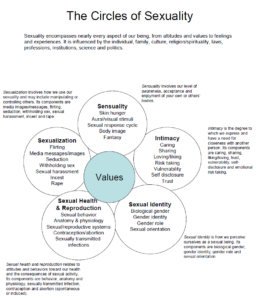Dating Safety and Sex Ed for Young People – Curriculum Overview
Talking about dating, sex, and everything that comes with it can feel overwhelming for parents and caregivers (not to mention awkward!). Yet it’s one of the most important ways to keep young teens safe as they begin to explore their independence and start to consider peer relationships beyond friendships. At Culture of Safety Dojo & Wellness Center, we are committed to helping young people navigate these exciting, occasionally frightening, often overwhelming relationships with knowledge and confidence. Parents and caregivers may worry that telling young people about sex can make them more likely to try it, however research indicates that comprehensive sexuality education has the opposite effect: young people who have received this kind of information are actually more likely to postpone sexual activity.
Culture of Safety recommends that young people postpone sexual intercourse. Our goal is to arm young teens with the knowledge of how to make responsible and mature decisions about their sexuality before they embark on sexual (or even romantic) relationships.
The Dating 101 curriculum is aligned with the curriculum published by the creators of Our Whole Lives, with some exceptions:
- Some topics are not included or are included only briefly. The full curriculum is 25 sessions; we have followed the lead of Oak Park OWL in topic selection.
- Some workshop materials have been revised to feel more relevant to youth today; the last revision of the OWL middle school curriculum was in 2014. Though this is relatively recent, a lot has happened since 2014, particularly in our cultural understanding of trans youth.
- In keeping with our empowerment self-defense lens, we include easy-to-learn physical resistance skills in addition to the interpersonal skills and sexual health and wellness emphasized by the OWL curriculum. Each session includes a physical self-defense component, and a communication component. Later sessions include practical information about sexual health and wellness.
Circles of Sexuality
 The Circles of Sexuality are central to OWL’s understanding of sexuality. The Circles are adapted from a resource from Advocates for Youth. The five circles:
The Circles of Sexuality are central to OWL’s understanding of sexuality. The Circles are adapted from a resource from Advocates for Youth. The five circles:
- Sensuality involves our level of awareness, acceptance, and enjoyment of one’s own or others’ bodies
- Intimacy is the experience of mutual closeness with another person
- Sexual identity is how we perceive ourselves as sexual beings
- Sexual health & reproduction focuses on attitudes and behaviors related to the sexual and reproductive systems, including health and hygiene, the health consequences of sexual behaviors, and the biology of producing children
- Sexualization involves the use of sexuality to influence, control, and/or manipulate others
At the center of these circles are an individual’s values, which guide their sexual decision making and influence all 5 circles.
Curriculum Topics
While subject to review and revision, the current topics in the curriculum are listed below. This is not a chronological list, and some topics will be combined with others.
- Assertive Communication & Boundary Setting
- Consent
- Gender Expression & Identity
- Healthy Relationships
- Physical Resistance Skills
- Puberty
- Relationship and Communication Skills
- Bystanders and Allies
- Sexual Anatomy
- Sexual Orientation
- Sexual Decision-Making
